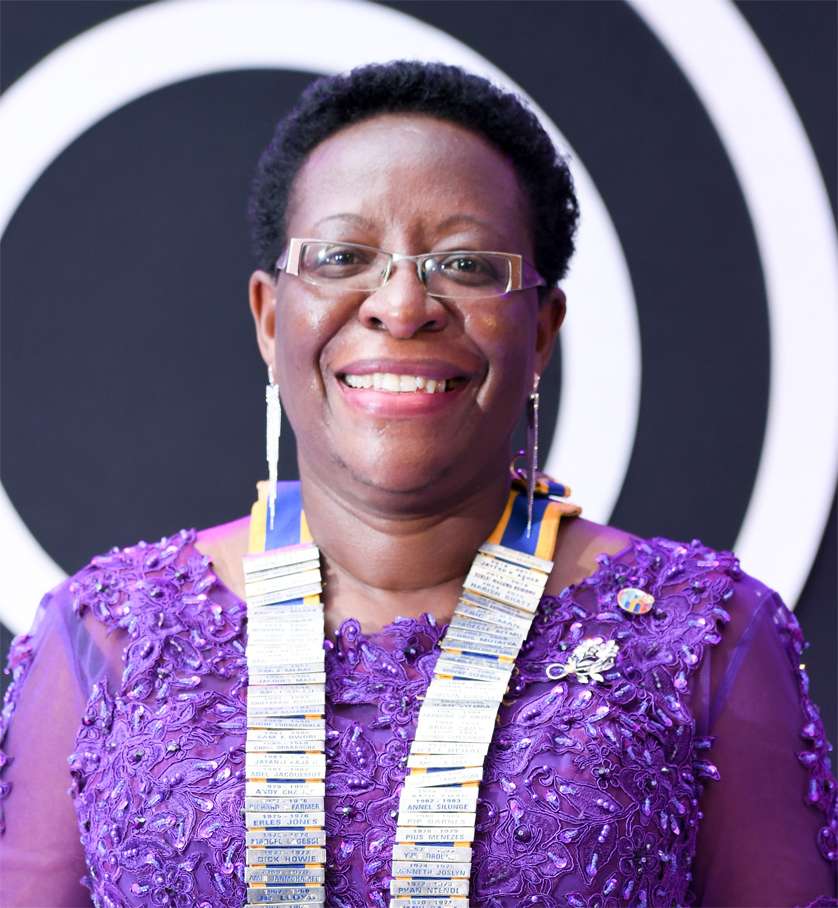
Hello! I am Rosetti Nabbumba Nayenga serving as President of the African Evaluation Association (AfrEA) and working in the Ministry of Finance, Planning and Economic Development in Uganda. I wish to share some learnings about the African Evaluation Principles (AEP) that were prepared by AfrEA members to contribute to the knowledge and practice of the Made in Africa approach (MAE). Great appreciation goes to the team of professionals led by Professor Zenda Ofir who developed this resource, through broadly consultative processes, particularly in the Global South. AfrEA, founded in 1999, is the first of five regional Global South evaluation associations and includes both individual members and national evaluation associations continent-wide.
The MAE approach can be traced to the fourth AfrEA conference in 2007 in Niamey, Niger where a special stream discussed “Making Evaluation Our Own.” The African Evaluation Principles (AEP) as finalized in 2021 formalized the emergent frameworks and guidelines to reflect the demand for evaluation that is ‘Made in Africa’ – rooted in and tailored for African contexts, needs, and knowledge systems, yet informed by international insights, theories, and good practices. To develop the AEP, AfrEA engaged with a group of more than 30 Voluntary Organizations for Professional Evaluation (VOPE) representatives and volunteers from across Africa, as well as global evaluators,
When I and other team members were developing these principles, we were driven by the motive that evaluation demands responsible practice because it can affect the lives of millions of people and the natural ecosystems on which all life depends. Bad evaluation can lead to death of humans and other living organisms due to wrong decisions and prescriptions. MAE starts with the assumption that evaluation is both a discipline in its own right as well as a values-based enterprise that has its roots in the social sciences.
The five fundamental Principles in the AEP provide a guiding framework for good evaluation practice in Africa.
- P- Powerful for Africans – evaluation empowers Africans, uses an empowering process, encouraging reciprocity and mutual accountability and strengthens domestic capacity
- T- Technically Robust – systematic, analytical, transparent, efficient and culturally sensitive
- E- Ethically Sound – protecting the rights of people, safe guarding diversity and inclusion, addressing inequalities and power asymmetries
- A- Africa-Centric yet Open – Engaging issues that matter to Africa, yet draws from across the world, leading and adapting from the Global South and indigenous communities
- C- Connected with the World – acknowledging interdependence and interconnectedness, fostering evaluation of sustainability and contributing to change and transformation
We have learned that a broadly inclusive and thoughtful consultative process engages the AfrEA community of practice in ways that build consensus. This is true at a pragmatic level (e.g., participatory approaches that respect local knowledge can increase intervention effectiveness and sustainability) and also in encouraging new learning and improved evaluation practice around the MAE approach. AfrEA is working with national African VOPEs to support research on how to integrate and learn how MAE – a systems approach – can be meaningfully contextualized as part of a learning agenda. AfrEA has also engaged with other global evaluation associations around building evaluation competencies, ethical practices, and the use of systems thinking.

